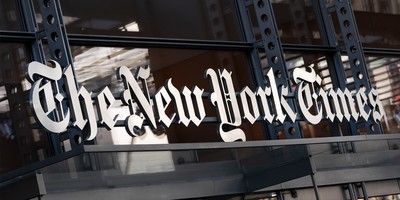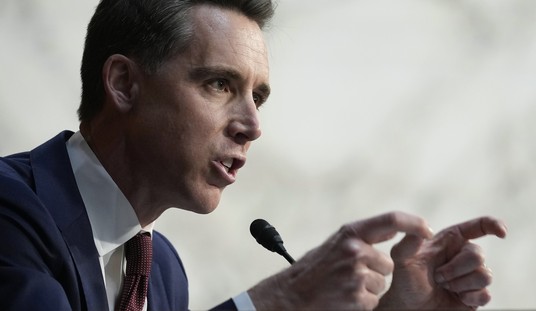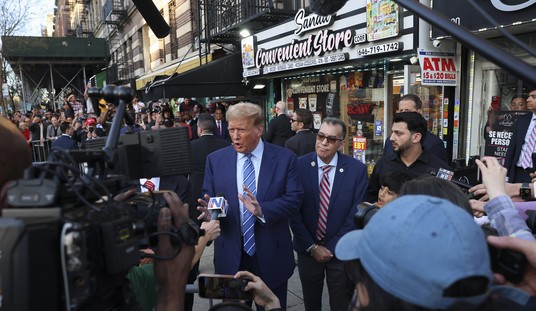Advertisement
Gillibrand announced her support for Obama’s deal on August 6, the same day Schumer announced his opposition.
Her decision has been a critical asset for the administration’s campaign to secure the support of other Democratic lawmakers torn between their duty to their constituents and their loyalty to Obama.
Gillibrand is a young senator who reportedly harbors aspirations for higher office. So her explanation for her support as well as her apparent determination that her interests are best served by facilitating the deal’s passage are important to consider.
In her online statement defending her decision, Gillibrand explained that while Iran’s support for terrorism and its regional aggression are serious threats to the US and its interests, “No issue matters more than ensuring that the Iranian regime does not have a nuclear weapon at its disposal.”
Parroting the administration’s talking points, Gillibrand argued that the deal, while imperfect, is the only means, short of war, for preventing Iran from developing nuclear weapons.
It would accomplish this task first by curtailing Iran’s nuclear activities.
Those activities will remain curtailed, she argued, because the deal subjects Iran’s “entire nuclear supply chain” to close monitoring “for years to come.”
Second, like Obama, Gillibrand trumpeted the inspections regime.
“This deal,” she wrote, “will provide international nuclear inspectors with access that they otherwise would not have had – and never will have if we reject this agreement.”
Recommended
Advertisement
Gillibrand added, “Inspectors will have the right to request access to suspicious sites forever.”
Finally, Gillibrand claimed, if Iran cheats and “pursues a nuclear weapon, international inspectors and intelligence operations will know faster than ever before. We will be able to snap back all of the American and United Nations sanctions, even unilaterally, and all options – including military action – will be on the table.”
As it turns out, all three of Gillibrand’s claims are false and misleading.
Iran did not agree to curtail its nuclear activities in a way that makes it impossible for it to develop nuclear weapons. True, it accepted limitations on its operations. But these limitations will not prevent Iran from becoming a nuclear power.
As Obama told National Public Radio in April, at the end of the deal’s lifetime, Iran will have “advanced centrifuges that can enrich uranium fairly rapidly, and at that time the breakout times would have shrunk almost down to zero.”
Then there is the problem of inspections.
Two weeks ago the Iranians announced Americans will not be permitted to inspect their nuclear installations.
Over the weekend, they said that only inspectors that they approve will be allowed to inspect their nuclear sites.
Since signing the deal the Iranians have scrubbed their nuclear site at Parchin, where they were suspected of working on weaponization projects including nuclear warhead development and miniaturization.
Advertisement
In her statement, Gillibrand acknowledged that the inspections regime is weakened by the fact that Iran has 24 days to respond to a request to inspect suspected undeclared nuclear sites. But she failed to note that this critical weakness isn’t the only problem with the inspections regime.
Under the deal, the US agreed that all requests to inspect suspected sites have to be justified. That means that the US will be required to endanger its intelligence sources and methods in order to gain access to suspected sites.
This not only makes it more difficult to gain access to suspected sites, it makes it more difficult to gather intelligence that would enable the US to identify suspected sites.
Who would want to provide information to the US when the US agreed to expose them to the Iranians? Under the deal, the Iranians can vacate their signature at any time. So if they fear the US is getting too close to facilities they wish to keep secret, they can just walk away. This makes a mockery of Gillibrand’s argument that “inspectors will have the right to request access to suspicious sites forever.”
They can request access forever. And Iran can deny them access forever.
Then there is her promise that if the Iranians cheat, “We will be able to snap back all of the American and United Nations sanctions, even unilaterally, and all options – including military action – will be on the table.”
Well, actually, no.
The European economic stampede on Tehran began even before the deal was concluded as European firms rushed to conclude billion-dollar deals with the mullahs. Given their compatriots’ deal-making enthusiasm, it is hard to imagine that European inspectors will be thrilled with the prospect of playing the heavy and exposing Iranian activities that will place billion- dollar deals in jeopardy.
Advertisement
Governments as well, are not going to be eager to reinstate sanctions that constrain their economic interests.
As for the vaunted military option, as Mort Klein and Daniel Mandel explained in The Washington Times Monday, the deal will make it exceedingly difficult, if not as a practical matter impossible, for the US to carry out an effective strike. The sanctions relief gives Iran the financial capacity to massively expand its deterrent power by arming its terrorist proxies.
The abrogation of missile and conventional arms embargoes means that by the end of the deal, Iran will have the means to attack the US with nuclear weapons.
Under the deal, the US itself committed to helping Iran fortify its nuclear installations from military assault and sabotage.
The S-300 anti-aircraft system Russia is selling Iran will protect its nuclear sites from air strikes.
Over the weekend, Republican Senator Jeff Flake announced he would oppose the nuclear deal. For the past several weeks, Obama and Secretary of State John Kerry aggressively wooed Flake, who was the only Republican who gave any indication that he might vote for the deal. Flake’s decision to oppose the deal means that Democrats who vote for it will bear full responsibility for its inevitable consequences.
And this brings us to Gillibrand’s political calculations, and those of her Democratic colleagues. Again, Gillibrand has made no secret of her aspirations for higher office. She obviously believes that her decision to back this deal, which guarantees that Iran will develop nuclear weapons, will not harm her chances either of being reelected or of running for president in the future.
Advertisement
In other words, she thinks that the radical Left is more powerful than AIPAC and as a result it is more important to secure the backing of the former at the expense of the latter.
Certainly, this is true today. After all, Obama is in the White House. But will this be true tomorrow, when she wants to make a move? How long does she think it will take for the consequences of the nuclear deal to become clear? Because of Flake’s decision to oppose the deal, Gillibrand is now being used as the fig leaf for the administration as it seeks to build a firewall of Democratic support for the deal to prevent two-thirds, veto-proof majorities from being formed in opposition to it. In other words, if the deal goes through, Gillibrand will be uniquely responsible for enabling the White House to pave the way for Iran’s nuclear empowerment.
Speaking to reporters in Las Vegas last Wednesday, Democratic minority leader Senator Harry Reid said he still hasn’t decided how he will vote. In his words, “When it all boils down to it, it’s a question of conviction. It’s not a political calculus for me anymore.”
In a gambling town like Las Vegas, Reid’s statement was a tell. He isn’t certain that supporting the deal is a good bet. The retiring senator is trying to decide if he wants a nuclear Iran as his legacy.
There is still ample time for Gillibrand to reconsider her position.
If she decides to change her mind and join Schumer in opposing the deal, her move will empower many others to oppose it and so minimize the chance that the deal, which – again – guarantees Iran’s path to a nuclear arsenal will be implemented.
Advertisement
On the other hand, if she maintains her current stand, when the lies that comprise her defense of this deal come crashing down – and they already are – and its inevitable consequences become manifest, her hopes for the future will be destroyed.

























Join the conversation as a VIP Member